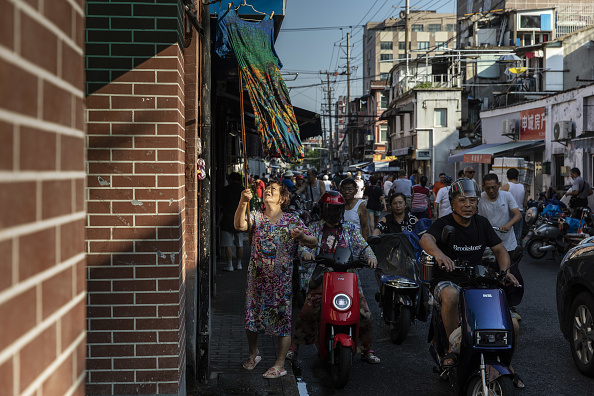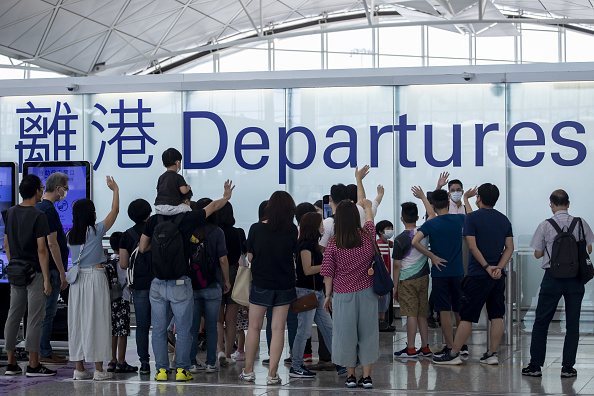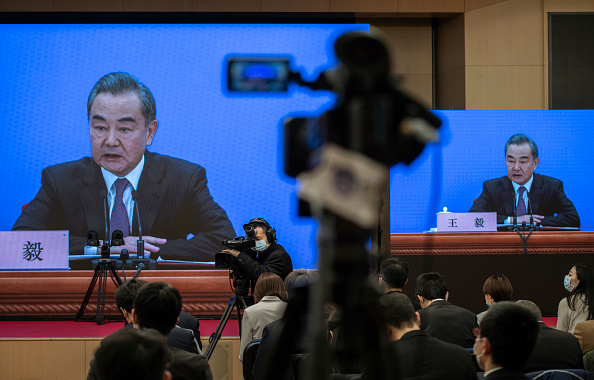
 The Last Word
The Last WordA wave of regulatory reforms affecting a vast range of industries—ride-sharing apps, video games, and education among them—have dominated China-related headlines for the better part of the last few months. Xi Jinping is preparing for a third term as China's leader, and has framed many of these policy changes as promoting "common prosperity" for the nation's rural and middle classes.
Some of the regulations are designed to level the playing field between different economic classes, while others are aimed at mass media and pop culture trends, viewed by some as an attempt by the CCP to have the "last word" on Chinese culture. Among the various regulations, the government's discouragement of media featuring "effeminate men" has received particularly widespread attention, and has been denounced by critics as homophobic.
China's culture wars have impacted foreign markets as well. Just this week, regulations on how much time youth can spend playing video games caused a drop in U.S. and European video game maker's stock. The approval of foreign titles has also been suspended in the short-term. Major Chinese companies like Tencent also took a hit in the gaming sector - as one of China's biggest publishers, they had been working with overseas game companies to push titles into China's once-lucrative gaming market.
 Travel Triumphs
Travel TriumphsOver the last several months, China has administered 2 billion doses of the COVID-19 vaccine and over 900 million Chinese citizens— over 60% of the total population— are now fully vaccinated.
As local outbreaks popped up, officials have maintained a tight grip by closing down communities and access to transportation. Some of these measures tanked airline stocks in July, when many cities and airports were locked down. China Eastern Airlines suffered a net loss of 5.2 billion yuan in the first two quarters, while China Air's first-half net loss totaled 6.8 billion yuan, and China Southern Airlines reported a 4.7 billion yuan first-half shortfall. However, things are looking up for "the big three," as second-quarter losses have eased up.
With the Mid-Autumn Festival approaching, China's travel market is already recovering, and domestic bookings are surging. Trip.com Group's Ctrip platform is boasting a 365% increase in China travel bookings, and some 800 million people are expected to travel for the holiday. Additionally China-to-Hong Kong travelers will no longer need to quarantine, as cases fall into single digits.
Read more in, "China and Its Role in Global Recovery: Little Evidence of Economic Decoupling," by Hugh Stephens.
 A Necessary Step
A Necessary StepWestern and Eastern allies separately convened to discuss the ongoing crisis in Afghanistan, as the Taliban officially named their new government in Kabul. While U.S. Secretary of State Antony Blinken met with western allies in Germany, Beijing summoned Afghanistan's neighbors for a discussion to explore combating terrorist groups, cracking down on the illegal drug trade, and helping Afghanistan reconstruct its society and economy.
At the meeting, Chinese Foreign Minister Wang Yi also announced that China will provide Afghanistan with $31 million in aid, including grain, winter supplies, and vaccines, in addition to China's initial pledge of two million Covid-19 vaccine doses. He also called on the Taliban to cut ties with and crack down extremist terrorist groups.
China is emphasizing that continued communication with the new Taliban government is a "necessary step" for reconstruction. Beijing also made clear it believes the U.S. and its allies have a profound duty to supply economic and humanitarian aid to Afghanistan, and to take in Afghan refugees.
Prepared by China-US Focus editorial teams in Hong Kong and New York, this weekly newsletter offers you snap shots of latest trends and developments emerging from China every week, while adding a dose of historical perspective.
- 2021-09-03 Heightened Frustrations
- 2021-08-27 China’s Backyard
- 2021-08-20 Graveyard of Empires
- 2021-08-13 A New Crossroads
- 2021-08-06 Lowering Barriers
- 2021-07-30 A Diplomatic Stalemate
- 2021-07-23 A Climate for Change
- 2021-07-16 The Trade Game
- 2021-07-09 Existential Threats
- 2021-07-01 Centenary Celebrations
- 2021-06-25 Critical Crossroads
- 2021-06-18 Part of the Club
- 2021-06-11 Retaliatory Legislation
- 2021-06-04 "Defanging" Diplomacy
- 2021-05-28 The End of an Era?
- 2021-05-21 One Step Forward, One Step Back
- 2021-05-14 Drifting Trade Ties
- 2021-05-07 Time to Talk
- 2021-04-30 Academic Pandemic
- 2021-04-23 Carbon Cutting
